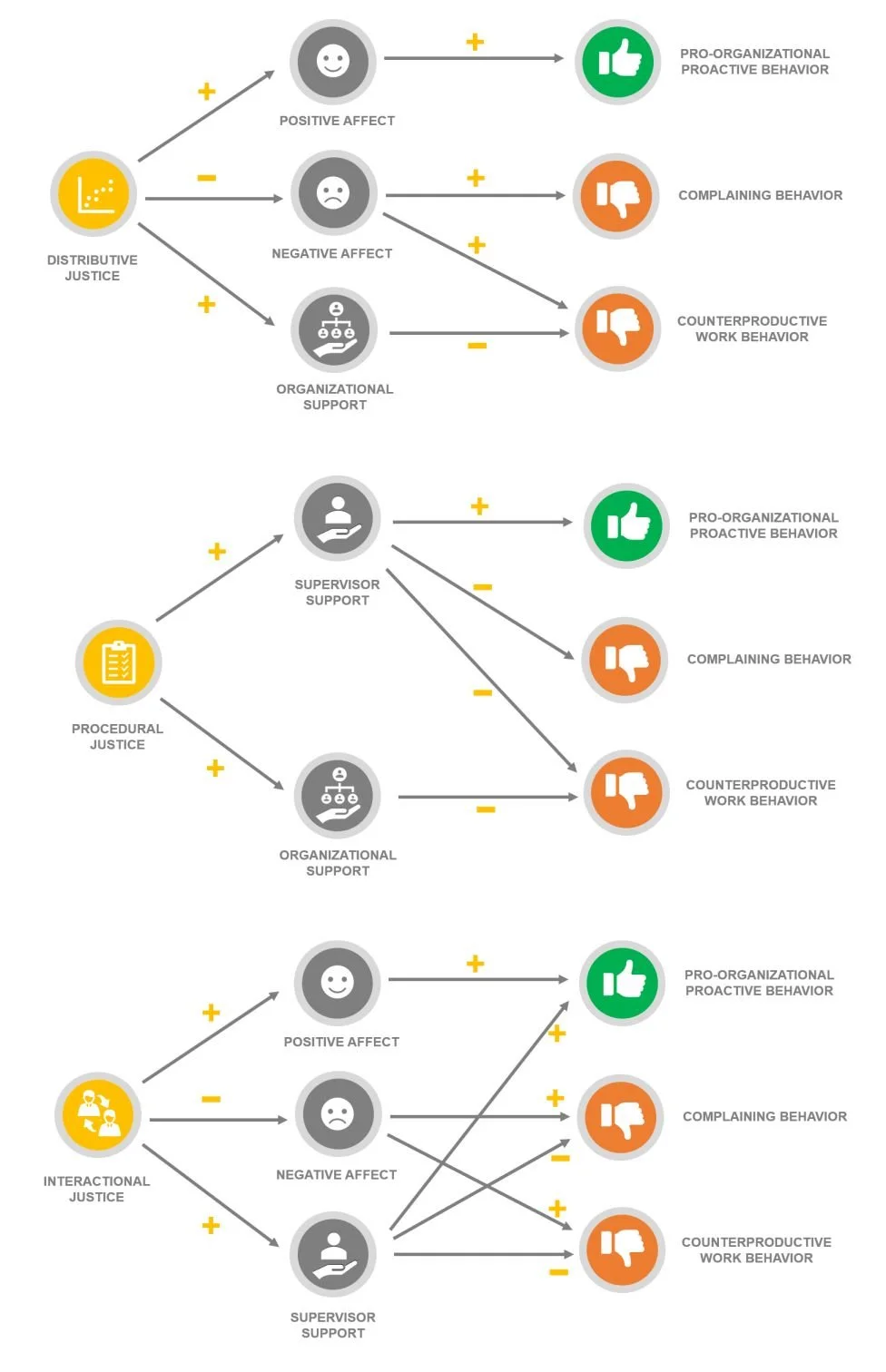Digest 37. The contribution of performance management to ethical behaviors
Nowadays, unethical behaviors such as corruption and abuse are quite wide-spread and are in the spotlight (check out Our World in Data report). Unethical behaviors in organizations are sensitive issues and range from stealing, lying, bullying to more subtle behaviors such as counterproductive work behaviors which are also important to be monitored (look at HBR and Gallup reports). Counterproductive work behaviors refer to employee intentional behaviors such as ignoring orders or being intentionally careless with organizational resources that harm the organization and other employees in the organization. To reduce unethical behavior in organizations, one needs to explore what causes such behaviors. A trigger is often offered when employees perceive injustice and unfairness in their work environment. Such perceptions of injustice and unfairness can be due to unfair performance appraisals (see Digest 2 on the effect of feedback communication on fairness perceptions) which would make basis for unjust compensation decisions. Compensation systems have more tangible effects and being based on unfair performance appraisal, such systems might be even more powerful in determining unethical behaviors.
How do perceptions of injustice lead to unethical behaviors?
Addressing this question, Jacobs, Belschak, and Den Hartog (2014) collected data from 332 police officers in Germany. They also collected data from each of the police officers’ colleagues who would be best able to evaluate their work behavior as they would accompany the police officer (respondents) on their daily missions. In this study the researchers measured organizational justice perceptions related to the police officers’ last performance appraisal. They looked into different types of justice, namely: distributive, procedural, and interactional justice. Distributive justice is related to which outcomes or resources are distributed among employees. These resources also often include rewards contingent upon performance appraisals. Procedural justice is associated with the processes that lead to outcomes and, hence, how fair are the criteria and procedures used to determine the allocation of rewards (for example, the criteria used to evaluate one’s performance). Interactional justice is related to perceptions of being treated with respect and dignity. For more information on different types of justice, have a look at Digest 2.
Jacobs and colleagues observed that distributive and interactional justice trigger positive emotions in employees which consequently, after a certain threshold, result in their proactive and pro-organizational behaviors. On the other hand, if employees perceive distributive and interactional in-justice in their performance appraisals, they will experience negative emotions and engage in unethical behaviors such as counterproductive behaviors -e.g., exaggerating work results and intentionally working slowly or carelessly- and complaining behaviors -e.g., complaining about trivial matters and exaggerating problems to harm internal morale and external reputation of the organization.
Jacobs and colleagues also found that the extent of procedural and interactional justice in performance appraisal results in employees perceiving greater social support: namely, that their organization takes their values and goals into consideration and their supervisors value their contribution and care about them. The perception of support from the organization makes employees less likely to engage in counterproductive work behaviors and the perception of supervisor support results in lower unethical behaviors (namely counterproductive and complaining behaviors) in employees. By the same coin, we can conclude that procedural and interactional justice, by fostering the perception of greater supervisor support, lead to more ethical behaviors.
Organizational implications
To reduce unethical behaviors of employees by leveraging the opportunities offered by performance management systems we recommend the following:
Organizations and HR practitioners are advised to create fair and ethical guidelines and policies especially for their performance appraisal and compensation systems to ensure that employees feel supported by their organization.
Supervisor support, or the lack thereof, is key for ethical and unethical behaviors respectively. Thus, we recommend supervisors to pay attention to how fairly they act in their performance appraisal. In particular, they should be concerned with interactional justice which is more directly under their control than distributive justice (often tied to policies decided higher up in the organization) and show their employees that they care about them and value their contribution. For how managers and supervisors can be perceived as fairer in performance evaluations by employees check out Digest 14 and Digest 33.
——
Reference: Jacobs, G., Belschak, F. D., & Den Hartog, D. N. (2014). (Un)Ethical behavior and performance appraisal: The role of affect, support, and organizational justice. Journal of Business Ethics, 121, 63–76. https://doi.org/10.1007/s10551-013-1687-1

